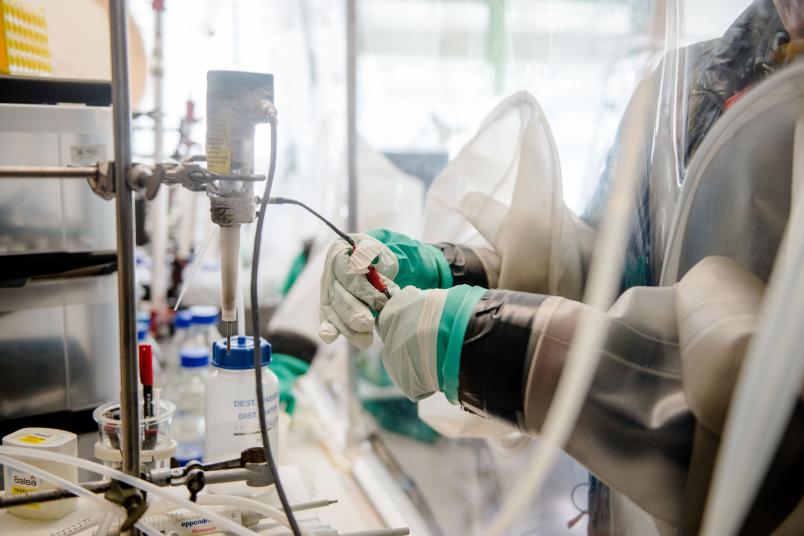
Biology
How oxygen destroys the core of important enzymes
New findings are expected to help protect the hydrogen-producing enzymes from harmful oxygen – which is interesting for biotechnological applications.
Certain enzymes, such as hydrogen-producing hydrogenases, are unstable in the presence of oxygen. Researchers at RUB have identified the reasons on the atomic level. Using x-ray structure analysis, they showed that certain iron atoms in the core of the enzyme are altered in the presence of oxygen, gradually leading to the disintegration of the entire active centre. The team outlines the results in the Journal of the American Chemical Society (JACS), published online on 14 October 2019.

The experiments were carried out jointly by three RUB groups: the photobiotechnology research group was represented by Dr. Julian Esselborn – today at the University of California, San Diego –, Professor Thomas Happe and Dr. Leonie Kertess. The team collaborated with Professor Eckhard Hofmann from the Protein Crystallography Group and Dr. Ulf-Peter Apfel from the Chair of Inorganic Chemistry I.